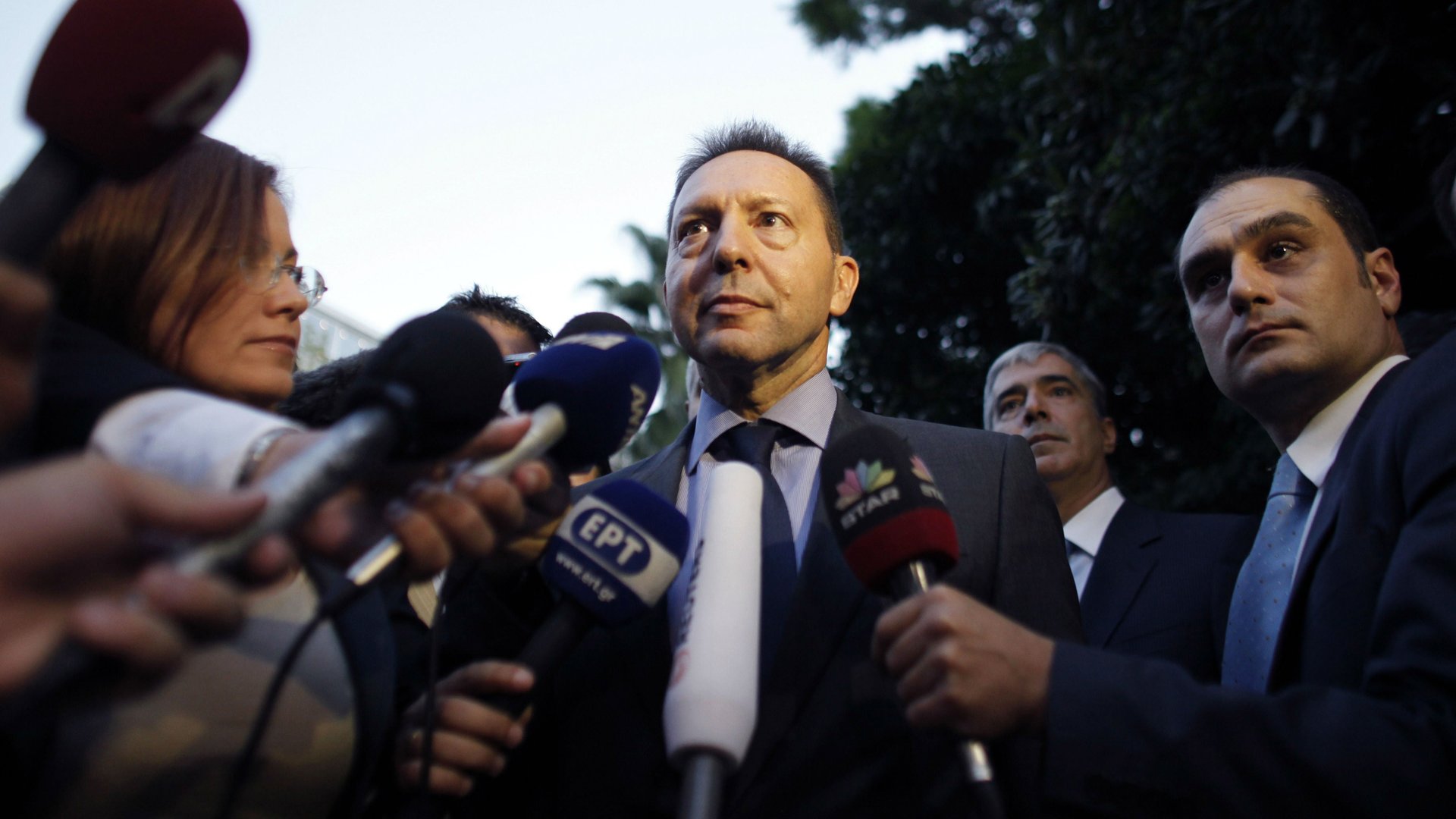Greece gets permission to suffer for two more years
Greece’s finance minister, Yannis Stournaras, says it’s official. He told parliament that the country will get two more years to reform its finances to meet the terms of its international bailout. European authorities have yet to confirm the news, saying they’re awaiting a report from international debt inspectors (alias, the troika) representing the European Commission, the European Central Bank, and the International Monetary Fund. But either way, perhaps the more important issue is what two more years might mean.

Greece’s finance minister, Yannis Stournaras, says it’s official. He told parliament that the country will get two more years to reform its finances to meet the terms of its international bailout. European authorities have yet to confirm the news, saying they’re awaiting a report from international debt inspectors (alias, the troika) representing the European Commission, the European Central Bank, and the International Monetary Fund. But either way, perhaps the more important issue is what two more years might mean.
Clearly an extension is necessary. Greece is extremely unlikely to meet fiscal targets on its current economic course. An extension would help Greece pass contentious budget cuts of €13.5 ($17.6 billion) through parliament. Without these cuts, there’s no positive report from the troika, and no next €31.5 billion aid installment to stave off eventual economic collapse.
The danger, though, is that “the extension lulls the Greek government into complacency and delays the reform process,” says Rand Fakhoury, an economist with UK consultancy Oxford Economics.
Greece’s economy is extremely fragile. It’s in severe recession and news today revealed government debt at one-and-a-half times GDP. Part of the bailout deal requires Greece to cut that to 120% of GDP by 2020. To meet that target—of course this goal could change given there’s little chance of meeting it—serious structural reforms are needed to boost competitiveness.
So far Greece has been slow to implement reforms—partly from paralysis that comes with its coalition government and partly over its preoccupation with more pressing budgetary concerns. While Greece has made progress, according to the World Bank, in some areas such as reducing the time it takes to get construction permits, streamlining taxes, and facilitating cross-border trade, reforms to spur economic growth, particularly those related to exports, have been slow in coming.
Export growth is the best avenue for economic expansion given weak domestic demand. Yet this growth depends on labor and sectoral reforms to increase productivity and lower production costs. So far, little progress has been made here.
In further news today, Stournaras announced that he had reached a deal with the troika on labor reforms. A leader of the Democratic Left party, a junior member of the three-party coalition, told Reuters that he will oppose it, despite any two-year reprieve from creditors.
And so the saga continues. Slow reforms, not enough export growth, more pain. Says economist Fakhoury:
Further foot-dragging will make austerity measures more painful by blocking off this channel of growth.